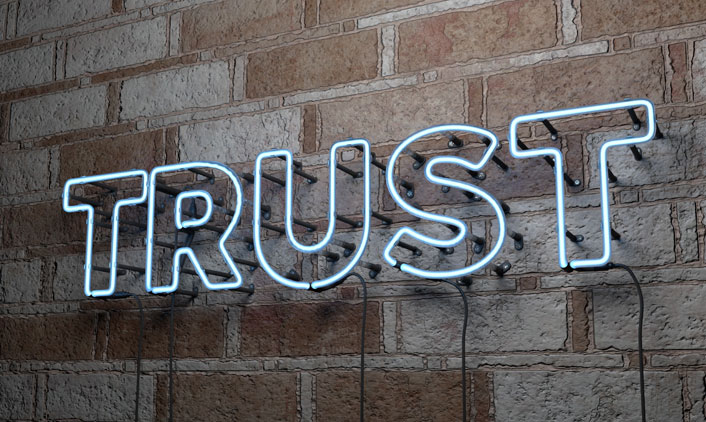According to the Australian Bureau of Statistics, 1.4% or 268,000 of Australians aged 15 and over reported being retrenched from their last job. Add to that five million jobs — almost 40% of Australian jobs that exist today — could disappear in the next 10 to 15 years because of technology, according to analysis by the Committee for Economic Development of Australia.
One of those disciplines most keenly affected by the rise of technology is marketing. Martech is disrupting both agency and client-side roles, changing engagement models and the traditional concept of the career path.
Being part of an organisation that’s grown and evolved with the changing demands of a modern design-led business has meant that I’ve seen plenty of change, some of which we couldn’t have predicted just 12 months ago.
The ‘good old days’ are long gone
In the early days of my career as an agency Account Manager, the role was essentially a ‘dabbler’. Meaning I was required to wear many hats in addition to managing client relationships, strategy and project management.
I needed a good understanding of media, production and creative to have informed conversations with colleagues and clients. Over time however, the scope of the role began to shrink as specialists appeared who were much more focused (and expensive) – enter the ‘strategic planner’.
Fast forward to today and the impact of technology has seen a proliferation of these roles, increasingly focused on specific channels and technology and increasingly siloed.
Consider this in the context of a client world of increasing pressures on time and resources and it means client/agency partnerships are at a crucial point in their evolution. There’s a good argument for a more collaborative client services model to deliver more value in this increasingly demanding environment.
One way this can be achieved is through multi-skilled agency talent. Notice I said multi-skilled and not generalist. I’m talking people who are very good at a small number of disciplines, not quite good at all; empowering them to contribute in key areas across an ‘always there’ marketing mix, rather than just one channel.
It requires adaptability to take your experience and apply it to another disciplines. For people stuck in the ‘old ways’ of working, this change is at times harder than it may first appear.
The world of ‘always there’ is here
Consumer needs and consequently the nature of service delivery has dramatically evolved. Agencies were once just asked to deliver ‘big brand’ campaigns. Now, with the advent of ‘always there’, technology-led models, there is a need for a more collaborative and continuous relationship.
In the ‘big brand’ model, client and agency working autonomously worked. Agencies were left to bring an idea to life. But as we move away from the traditional model toward an ‘always there’ collaborative model, creative firms need talent and methodologies suited for this shift. Multiple channels, technologies and increased personalisation mean that one big broadcast idea won’t fly and that multiple test and learn applications of an overarching creative concept are becoming the norm. And standard project methodologies don’t align well with that approach.
Agile can be the answer but it’s not for everyone. It’s important to stress that there isn’t a ‘one size’ fits all approach and Wagile (a mix between the more traditional Waterfall and Agile), could be the answer for some.
This means, it’s not just what we do that’s changing, it’s how we do it.
Have a plan, that’s not a plan
With this almost continuous change of both skills and application, having a plan of how to future proof your career is a wise move. But as I’ve discussed, if there’s one thing we’ve learned, the pace of change is now so rapid, that many ‘career plans’ become redundant pretty quickly.
Instead, your planning should be focused on your ability to adapt, embrace the new and build resilience to change. In essence, it’s empowering you to plan for things you can’t plan for, knowing that this is normal and actually can be exhilarating (if a little scary at times).
Three things to develop when considering future-proofing your career in this environment are:
- Be curious at all times
- See change as a positive necessity
- Remember, EQ is where humans add value
Be curious and ready to learn new things
As Einstein said, “I have no special talent. I am only passionately curious.”
Being curious sets exceptional marketers and agency partners apart. Those of us who are passionate about learning and embracing new technology and channels are the ones who will thrive.
Being more curious can be as simple as organising regular coffees with colleagues or agency partners who focus on an areas outside of your knowledge base. While this sounds obvious, many marketers in silos don’t have the time to fully understand the roles of their colleagues and their agencies.
You might also want to look outside of your current network. The Meetups community have many, free and targeted sessions that focus on key areas of marketing technology. They’re a great place to hear from and network with experts. And if you get one vital insight from one of these sessions, it can be extremely powerful.
See change as a positive necessity
The pace and intensity of change in marketing has massively increased, fuelled by technology and consumer demand. Think about how many of you and your peers adopt new technology, like wearables, or Uber to remove friction in their lives.
The question is why we don’t tend to adopt the same emotional bravery when it comes to change at work.
In truth technology can make our working lives better, make us more effective and empower us to provide evidence of our successes, that we’ve previously struggled to demonstrate. One approach we take is to the same attitude to new technology as we do with our personal gadgets, apps and even fitness fads.
We try it. We test it and we learn from our mistakes. Why not try it – volunteer to look into a new piece of tech, play with it and be comfortable that it might not be right for you.
Remember EQ is where humans add value
Ultimately technology will impact existing roles, requiring new skills and may even mean that your job now will no longer exist in 12 months time. But remember, technology is just a tool, and one thing it can’t replace is your ability to provide insights through empathy, emotional intelligence and creativity.
To make yourself essential and support your career development, honing these skills will become imperative.
Finding ways to connect with your customers and in an agency environment, your customers’ customers, is key to building empathy. With ‘relentless empathy’ being embraced by brands, it’s more and more important that we connect to the emotional needs of our customers and use technology to meet them.







